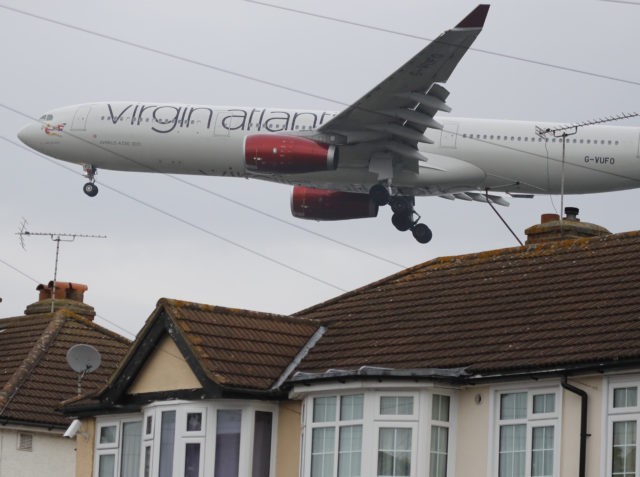LONDON (AP) — A third runway at Heathrow Airport was approved Tuesday by Prime Minister Theresa May’s Cabinet, setting the stage for a parliamentary vote on the matter after years of debate over how to increase airport capacity around London.
Transport Secretary Chris Grayling described the decision by a Cabinet sub-committee as the right move for the country and one that signals Britain’s commitment to expand international trade transport links, which will boost the economy for generations to come.
The location of a new runway in southeastern England has been debated for years amid concerns about pollution, traffic and noise at Heathrow, already one of the world’s busiest airports. The issue is so toxic that politicians created an independent commission to weigh the options, but its deliberations repeatedly stalled amid disagreements among lawmakers before the panel finally backed Heathrow.
“My department has met with local residents and fully understands their strength of feeling, but this is a decision taken in the national interest and based on detailed evidence,” Grayling said.
Foreign Secretary Boris Johnson, whose constituency is heavily affected by the noise and pollution from Heathrow, once promised to lie down in front of bulldozers rather than allow the airport to expand. May’s constituency of Maidenhead, west of London, will also likely be affected by a third runway.
Furious public relations battles raged for years before the Airports Commission backed Heathrow in 2015, rejecting plans from Gatwick Airport, 30 miles (50 kilometers) south of central London, as well as a proposal to build a new airport in the Thames Estuary.
The Department for Transportation last year asked for public comment on the Heathrow option, arguing the project would permit an additional 260,000 flights a year and give a 74 billion-pound ($99 billion) boost to the British economy over 60 years.
While Heathrow’s neighbors oppose expansion of the airport, business groups have backed it as the best option increase capacity for passengers and cargo.
The vote is now likely to be held in July. Given that a number of lawmakers from May’s Conservative party have said they will vote against the Heathrow project, the prime minister will likely have to rely on support from opposition parties.
And even if approval is granted, the argument is likely to go on as anti-expansion activists are expected to mount a legal challenge to the project.
John Stewart, chairman of the anti-Heathrow expansion group Hacan, described the vote as a bad day for residents. The Heathrow project would bulldoze homes and villages and increase disruption for those left behind.
“Many communities will face a tsunami of noise if a third runway goes ahead,” Stewart said. “Many people who will be under new flights paths will find their lives changed forever.”
Business groups reacted with unrestrained glee, hopeful that a decision was at hand at last. Josh Hardie, deputy director of the Confederation of British Industries, said expansion would create opportunity for business as the country prepares to leave the European Union.
“Expanding our aviation capacity and creating new flight routes to rapidly growing markets is mission critical to ensuring Britain can compete on the post-Brexit world stage,” he said. “The new air links the runway will create will unlock growth and help create jobs at home, and enable more businesses … to export their goods and services to booming markets.”
